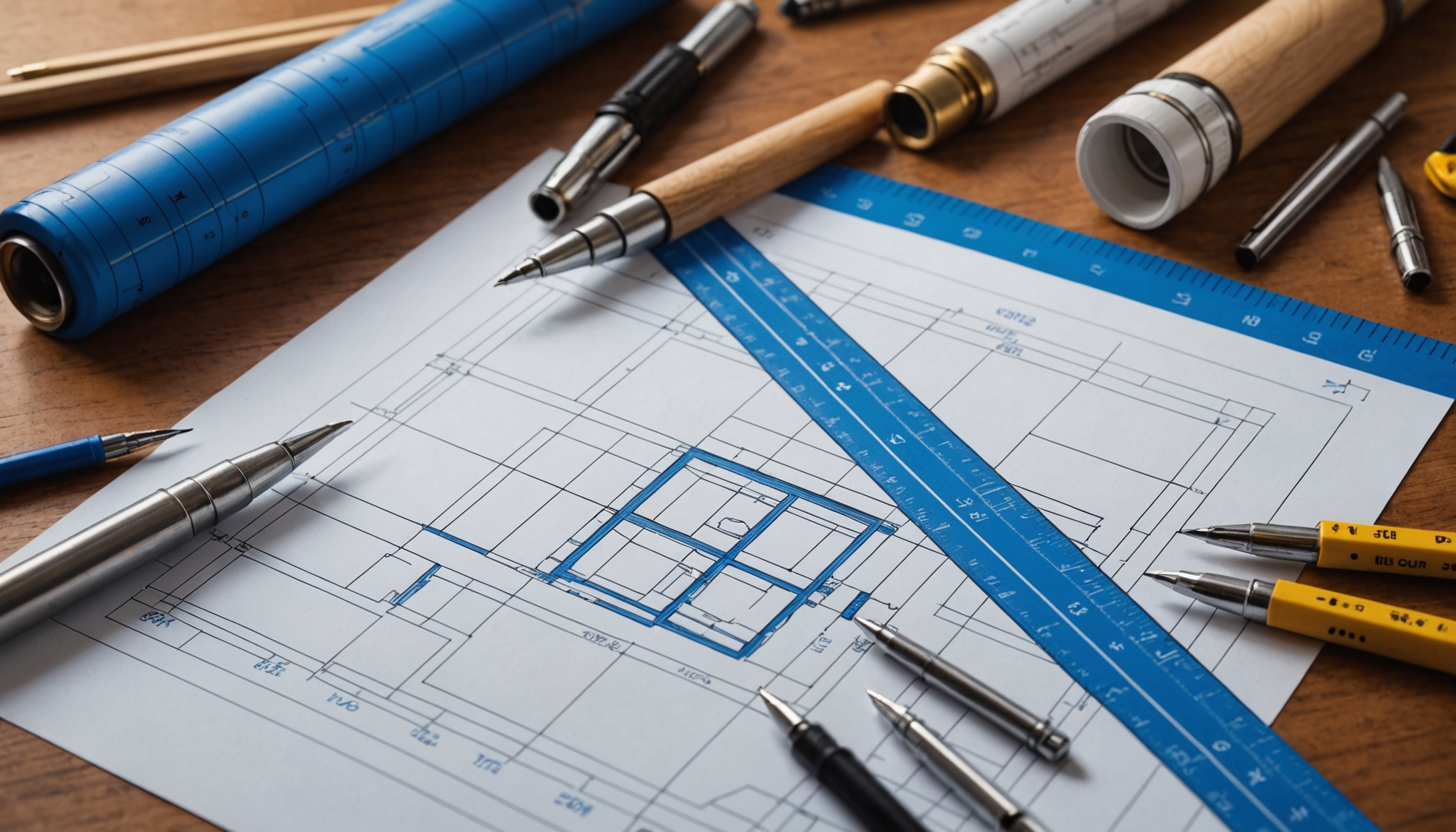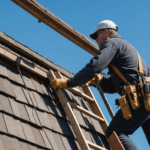When engaging an excavation contractor, one of the most pivotal aspects to address is the complete understanding of your project’s scope. This foundational step serves to align the expectations of both you and the contractor regarding what needs to be achieved. A clear, comprehensive scope ensures that all parties are on the same page, reducing the potential for misunderstandings or disputes as the excavation progresses.
First, start by clearly outlining the objectives of your project. Whether it’s preparing land for a new construction, grading for landscaping, or creating a foundation for a utility installation, it’s crucial to articulate these goals unambiguously. Discuss the specific tasks the excavation will encompass, including land clearing, trenching, or any special considerations like working around existing utilities or structures.
Next, delve into the specifications of the site itself. These specifics may include soil type, the presence of groundwater, or any environmental restrictions that may affect excavation. These details help contractors evaluate the challenges they might face and prepare accordingly. It can also be beneficial to provide the contractor with any existing site surveys or previous reports that offer insight into the site’s conditions.
In addition to discussing the physical tasks involved, it’s essential to address the desired outcomes. This includes the level of readiness the site requires when the contractor completes their work. For example, you may need certain elevations achieved or particular areas reinforced for stability. Be explicit about these requirements early on, as they can significantly influence both the approach to and cost of the excavation.
Communication about potential challenges and limitations is also crucial. Ask about how the contractor plans to deal with unexpected issues such as inclement weather, equipment failure, or unforeseen subsurface obstacles. Understanding their problem-solving processes and contingency plans will give you confidence in their ability to handle the complexity of your project.
To further ensure clarity, request a comprehensive scope document from your contractor. This document should detail all discussed elements, serving as a reference throughout the project’s lifecycle. It provides a benchmark against which to measure progress and assess compliance with agreed-upon goals.
| Aspect | Considerations |
| Objective | Define project goals clearly |
| Site Specifications | Identify soil type, groundwater presence, environmental constraints |
| Desired Outcomes | Ensure site readiness post-excavation |
| Challenges | Plan for weather, equipment issues, subsurface conditions |
| Documentation | Provide and request a detailed project scope document |
This thorough understanding of the scope is not only a prelude to successful execution but is also a foundation for a transparent, trusting relationship with your excavation contractor. It paves the way for efficient project management and helps avoid costly and time-consuming snags down the road.
timeline and scheduling details
When discussing timeline and scheduling details with your excavation contractor, it’s vital to ensure that all parties have a clear understanding of the project’s duration and how various tasks will be sequenced. Here’s a structured approach to discussing these details:
- Initial Scheduling Discussion: Begin by requesting a preliminary schedule that outlines the key phases of the excavation project. This schedule should include start and end dates for each phase, such as site preparation, excavation, and clean-up. By having an outline, you can gauge whether the timeline aligns with your larger project goals and deadlines.
- Identify Critical Path and Milestones: Discuss and identify the critical path—the sequence of tasks that must be completed on time for the entire project to stay on schedule. Ensure both parties agree on major milestones and their deadlines, which might include equipment mobilization, utility checks, or inspections. Milestones serve as checkpoints to assess whether the project is progressing as planned.
- Consider Seasonal and Weather Impacts: Factor in any seasonal changes or weather conditions that might influence the scheduling. Some excavation activities can be severely affected by rain or extreme temperatures. Ask the contractor how they plan to mitigate these issues and whether such delays have been built into the timeline.
- Flexibility and Contingency Planning: Understand the contractor’s approach to handling unforeseen delays. Ask about their contingency plans for common issues that might arise, such as equipment breakdowns or unexpected site conditions. A flexible schedule that considers potential disruptions is crucial for keeping the project on track without compromising quality.
- Regular Progress Updates: Establish a communication plan for regular updates to keep track of the project’s progress. Agree on how often updates will be provided and the preferred method of communication, whether via weekly meetings, phone calls, or written reports. Regular updates help ensure transparency and allow for timely adjustments if necessary.
- Coordination with Other Contractors: If other contractors (e.g., construction or utility teams) are involved, synchronization is key. Discuss how the excavation schedule will integrate with the timelines of other teams to prevent any overlaps or work stoppages. Effective coordination minimizes downtime and maximizes efficiency.
- Documentation of the Schedule: Once all details have been discussed, request a written, detailed schedule from the contractor. This document should include all agreed-upon aspects, providing a tangible reference for both you and the contractor. It can serve as a tool for monitoring progress and ensuring accountability.
By addressing each of these elements systematically, you can foster a collaborative environment that supports timely project completion. Proper planning and communication regarding the project’s timeline are indispensable to a seamless and efficient excavation process.
cost estimates and payment terms
When negotiating cost estimates with your excavation contractor, transparency and detail are crucial to avoid surprises and ensure a clear understanding of the financial commitments involved. Begin by requesting a comprehensive breakdown of the potential costs associated with your project. A detailed estimate should encompass not just the basic labor and material expenses, but also possible extras such as equipment rentals, permits, or site-specific challenges that may arise. This level of detail allows you to see exactly where your money is going and provides opportunities to discuss ways to potentially reduce costs.
Strong emphasis should be placed on the necessity of understanding what is included in the quoted price and what might be considered an additional charge. Be clear about whether the estimate includes all necessary tasks, such as site clearing, grading, and debris removal, to avoid later disputes. Encourage the contractor to also include allowances for unforeseen circumstances, which might otherwise lead to budget overruns.
When discussing payment terms, it’s important to establish a schedule that aligns with project milestones. Typically, contractors will request a deposit at the outset, with subsequent payments tied to completing specific phases of the project. This not only ensures that the work is progressing as planned but also gives you a mechanism to ensure quality and adherence to the agreed timeline before making further financial commitments. Always request a written payment schedule, and agree on terms that clearly specify when payments are due.
Moreover, it’s beneficial to discuss how potential changes in project scope might affect the overall cost. Amendments to the initial plan—such as expanding the excavation area or modifying the site’s design—can substantially impact costs. Establishing a protocol for change orders at the outset provides a structured way to handle such instances. This agreement should outline how changes are documented, approved, and how they will affect both time and budget.
In addition, inquire about the contractor’s policy on disputes over costs or payments. A reputable contractor should have a clear process for resolving disagreements that may arise. Knowing in advance how these will be handled can give you peace of mind and set the tone for a positive working relationship.
Lastly, ensure there is a clear understanding of the consequences of payment delays on your part. Not adhering to the agreed payment schedule can lead to work stoppages or even legal disputes. Both parties should have a shared understanding of the implications to keep the project flowing smoothly.
By thoroughly discussing these financial aspects, you can prevent misunderstandings and establish a healthy working relationship grounded in mutual trust and transparency. These discussions lay the groundwork for a project that remains on budget, while also accommodating necessary changes with flexibility and foresight. Financial planning is as critical as technical planning, and having a structured discussion on these fronts is crucial for the successful completion of your excavation project.
insurance and licensing
In any excavation project, ensuring that the contractor is properly insured and licensed is non-negotiable. This provides a layer of protection for you and your property, mitigating the risk of liability issues or project setbacks due to regulatory non-compliance. Begin by verifying the contractor’s licensing status, which assures they have met the legal requirements and possess the necessary qualifications to undertake excavation work. Confirm that their license is not only current but also applicable to the specific type of excavation services you require. Depending on your locale, certain projects might require state or local licenses, so it’s important to verify all applicable certifications.
Beyond licensing, understanding the contractor’s insurance coverage is essential. A reputable contractor should carry both liability and worker’s compensation insurance. Liability insurance covers property damage or third-party injuries that might occur during the project. Worker’s compensation insurance protects you from responsibility in case any of the contractor’s employees are injured while working on the job site. Request copies of their insurance certificates and verify the policies are active and adequate in coverage.
Ask for clarification on the limits of these insurance policies and whether they provide sufficient coverage for the scale and complexity of your project. It’s not uncommon for a contractor’s policy to have exclusions or limitations—such as not covering specific types of work or exceeding coverage limits in the event of significant damage—so understanding these nuances will help you assess whether additional coverage might be necessary.
Additionally, consider asking about the contractor’s track record regarding claims. A contractor with a history of frequent claims might suggest carelessness or poor workmanship, indicating potential risks in hiring them. Conversely, a low claim history can reflect a strong emphasis on safety and quality work, enhancing trust in their capabilities.
It’s wise to also inquire about the contractor’s commitment to industry standards and continuous education. Contractors who regularly update their skills and knowledge about safety regulations reflect positively on their dedication to competent service provision.
Remember that obtaining necessary permits is a critical component of legal compliance in excavation work. Discuss whose responsibility it is to secure these permits. While contractors often handle this aspect, confirming this in writing can prevent unnecessary delays or legal issues.
In summary, a thorough discussion about insurance and licensing fosters confidence in your contractor’s ability to manage the project responsibly. By proactively examining these details, you protect your interests and lay the groundwork for a professional partnership that prioritizes safety and regulatory compliance.
safety protocols and precautions
Ensuring the well-being of all involved in an excavation project and minimizing risks are paramount, making it crucial to address safety protocols with your contractor. Start by inquiring about the specific safety measures the contractor has in place to protect both their team and the public. These should include the use of protective gear, the establishment of secure perimeters around the job site to prevent unauthorized access, and protocols for handling hazardous materials or situations.
Assess the contractor’s commitment to following local and federal safety standards and regulations, such as those set by the Occupational Safety and Health Administration (OSHA) in the United States. Confirm that they conduct regular safety training sessions for their employees, which are necessary to ensure everyone is up-to-date on the latest safety procedures and emergency responses.
Discuss the contractor’s approach to site inspections. Routine inspections can identify potential hazards before they become problems, and demonstrate a proactive stance toward safety management. Ask about the frequency and scope of these inspections, as thorough checks of equipment and site conditions are vital to maintaining a safe working environment.
Emergencies such as equipment malfunctions or adverse weather conditions are unpredictable but must be planned for. Inquire about the contractor’s emergency response plan, including how they intend to evacuate personnel, secure the site, and communicate with emergency services if required. Knowing that there is a clear, practiced plan in place can provide peace of mind.
Communication is another key aspect of site safety. Establish how safety information will be conveyed between all parties, especially if you need to access the site during operations. Agree upon a system for promptly reporting accidents or near-misses, as this transparency can lead to adjustments in safety measures to prevent future incidents.
Confirm that the contractor conducts regular safety briefings with their team. These briefings should highlight the tasks for the day, identify potential risks, and assign responsibilities to ensure everyone knows their role in maintaining safety.
Finally, consider the importance of fostering a safety-first culture on site. Contractors who prioritize a safety-focused work environment often exhibit higher levels of professionalism and accountability. Identify signs of such a culture in their daily operations, such as visible safety signage, well-maintained equipment, and active participation in safety discussions by all employees.
By scrutinizing your contractor’s safety protocols and precautions, you help establish a foundation of trust and responsibility. This collaboration ensures that your excavation project proceeds with the highest priority given to protecting human life and property.
Developing a sound understanding of your excavation project’s scope and addressing key aspects like scheduling, cost management, insurance, and safety protocols are crucial steps in ensuring a seamless and successful project. By engaging in open, detailed discussions with your contractor on these fronts, you lay the groundwork for a project managed with transparency and vigilance. Remember, a well-planned excavation not only meets your immediate goals but also secures a foundation for future endeavors.


